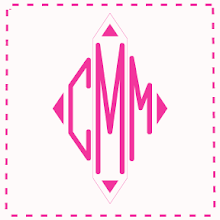 Tonight is book club and for April, MM girlfriend, Traci, is hosting at her home and chose The Guernsey Literary and Potato Peel Pie Society by Mary Ann Shaffer and Annie Barrows. I had heard lots of chatter about this book so I was eager to read it. And given how busy April has been for me, I'm still reading it and likely will still be reading it tonight while I'm sipping my glass of wine at Traci's, but that is neither here nor there.
Tonight is book club and for April, MM girlfriend, Traci, is hosting at her home and chose The Guernsey Literary and Potato Peel Pie Society by Mary Ann Shaffer and Annie Barrows. I had heard lots of chatter about this book so I was eager to read it. And given how busy April has been for me, I'm still reading it and likely will still be reading it tonight while I'm sipping my glass of wine at Traci's, but that is neither here nor there.I had a little difficulty getting into this book because it starts right off as a letter from the main character, Juliett, to her publisher friend, Sydney with no lead-up or warning at all. Juliett is a published author in London who wrote under the alias Izzy Bickerstaff during WW II. She essentially wrote humorous essays on the non-humorous events that were unfolding during the war (in England) and became a huge success. I should interject at this point and tell you that this is a historical fiction, just in case any of you get a wild hair and decide to google Izzy Bickerstaff.
Anyhoo, now in post war England, Juliett is given an assignment to write 3 articles for the Times on books and reading and what they came to mean to people during the war. Not knowing what to write about or where to start, she gets a random letter from a man who found one of her books in a book store in the Guernsey Islands who writes asking her for more information on the book and it's author, and that begins a long correspondence between the two. It is from these letters that Juliett learns of The Guernesy Literary and Potato Peel Pie Society that this man and his friends started during the War in Guernsey. Cut off from all communication with the outside world from the Germans, a group of he and his friends concocted this faux literary society as a way to still meet and enjoy eacht others company during the German occupation without getting in trouble w/ the Germans. And what started as a cover for their meetings, ended up turning into an actual book club which helped them cope during the war.
The entire book is written in letter form. Letters from one person to another, hand written dinner invitations, and all the members of the Literary Society corresponding to Juliett to tell her their own stories of their involvement w/ the Literary Society and the various members. All I kept thinking was that all this written correspondence must have been exhausting and nerve wracking waiting on replies since there was obviously no email in the mid 40's. Some of the characters are pretty humorous in their gossipy-type letters, but others are rather straight-forward but really explain a lot about the time period what was going on during the war. Once I got used to the format of the book, it was relatively easy to settle in to.
All in all, so far, so good. I can't say it's "great" because I haven't come close to finishing it yet. However, all my book club girlfriends who've finished are all raving about how much they love this book so my hopes are high.
photo source: Amazon.com


















1 Comment:
I actually love books written in letter format, so I'm anxious to read it. Lady Susan is another good one written in letter format (Jane Austen). A contemporary fun one written in letter format is called Dear Exile...two friends, one in Africa in the peace corps and one working in corporate Manhattan. Sweet and a quick read. But the funniest book I've ever read was written in email format, called E by Matthew Beaumont. It's seriously 'laughed so hard I cried' funny.
Thanks for the review!
Post a Comment